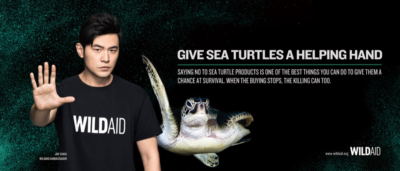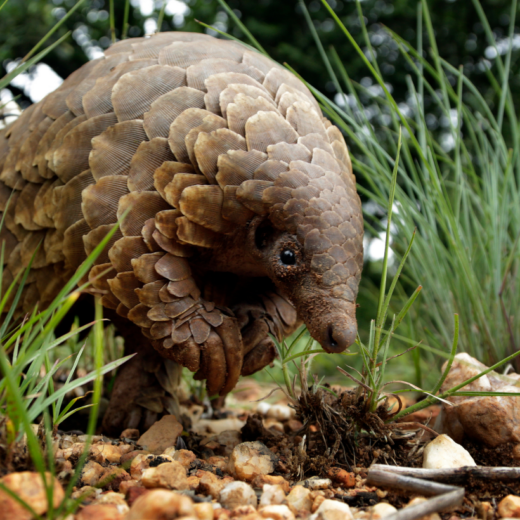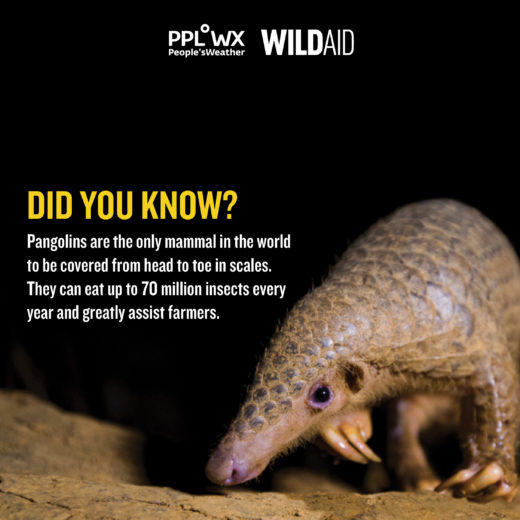
In a year when Asia is seeing record numbers of pangolin seizures and a new United Nations report highlights devastating losses to biodiversity, one of China’s biggest stars, Jay Chou, has joined with WildAid to protect pangolins and sea turtles.
A new series of messages calls on consumers to help protect wildlife by never purchasing pangolin and sea turtle products. The campaign billboards, which will be displayed across Greater China, were released at a Beijing press event hosted by WildAid, the China Wildlife Conservation Association, and the China Aquatic Wildlife Conservation Association.
With a career spanning two decades and countless hit songs that have helped define recent generations in China and the region, Chou is committed to helping protect wildlife. Speaking at the event Chou said, “we can all play our part in protecting this endangered wildlife by not purchasing these products and also telling our family and friends to do the same.”
Chou joins WildAid on the heels of a new U.N. report that thoroughly documents the accelerating loss to global biodiversity this last century. The report finds that 32 million hectares of primary forest were lost between 2010 and 2015, half of all coral reefs are now dead, and the number of native species in land and water around the world has declined by one-fifth in a little more than a century.
One species that embodies the challenges faced in protecting marine ecosystems are sea turtles. Found throughout the world’s oceans, sea turtle populations are in rapid decline due to habitat loss, climate change, overfishing, and illegal trade in sea turtle eggs, meat, and shells.
A WildAid survey found that 17% of 1,500 Chinese residents had purchased sea turtle products and 22% are considering making a purchase in the future. However, 60% agree that poaching is common and a serious problem and 95% support greater national protection for endemic sea turtle species. Renewed efforts by Chinese authorities to protect the country’s remaining sea turtle populations and to combat illegal trade show promise.
Meanwhile, the pangolin is the most illegally trafficked wild mammal in the world. Major seizures in just 2019 alone include 30 metric tons of pangolins in Malaysia and 8.3 metric tons of scales in Hong Kong SAR. Two seizures in Singapore recently totaled 25.6 tonnes.
“The alarming scale of the pangolin trade in recent decades is driving this important species to disappear across Asia and now Africa,” noted John Baker of WildAid at the event, “and despite the applaudable efforts of agencies across the region, it’s imperative for consumers to say no to these products and report any illegal sales.”
The media campaign is being spearheaded by AirMedia, devoting airport billboard space across China, and TikTok and Zhihu providing promotional space on their apps to reach their combined nearly 700 million users. Campaign billboards will also be distributed at outdoor locations across China reaching tens of millions of viewers.
Special thanks to CHAO Sanlitun Hotel for hosting the press event.


Stay in touch and get the latest WildAid updates.
SIGN UP


